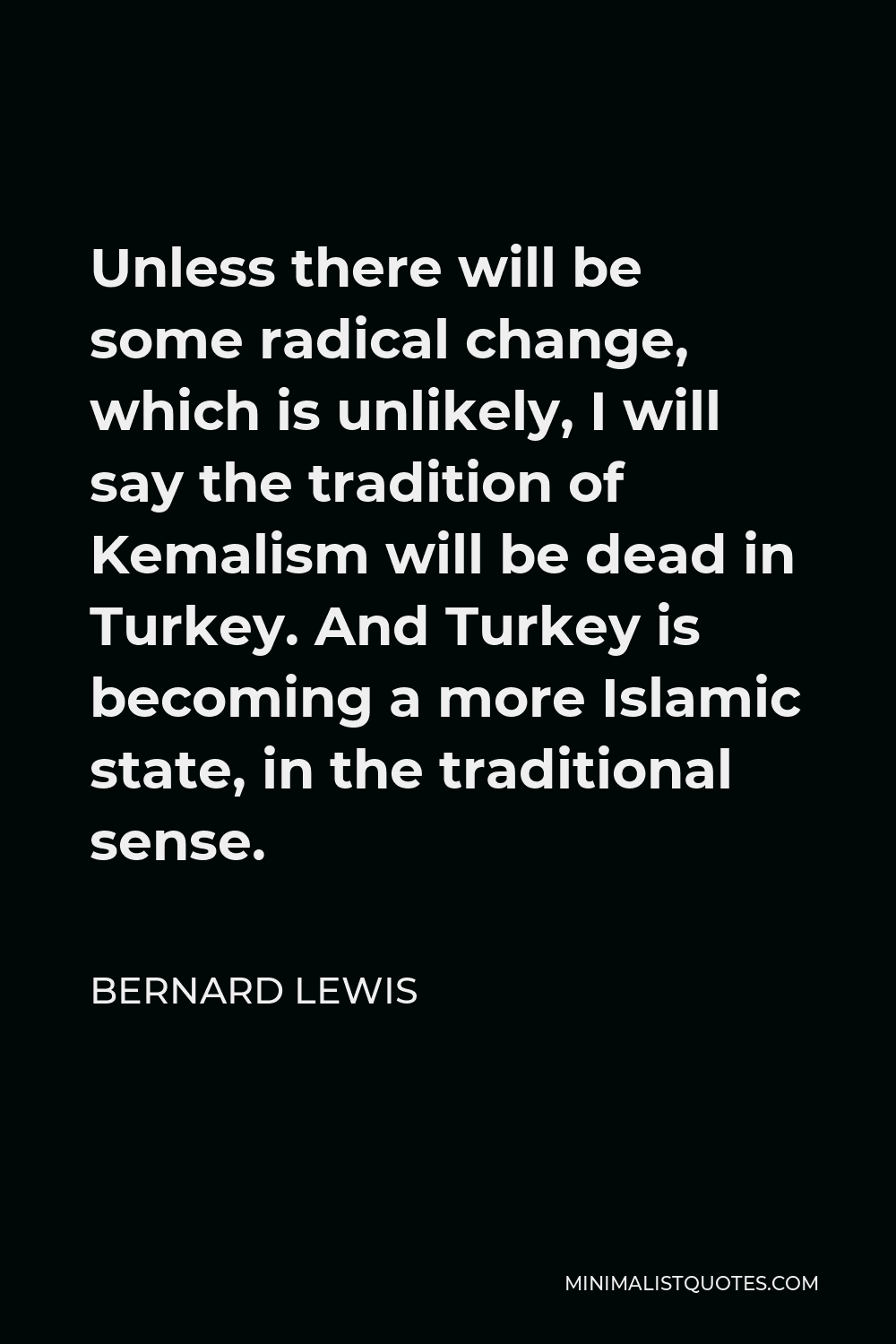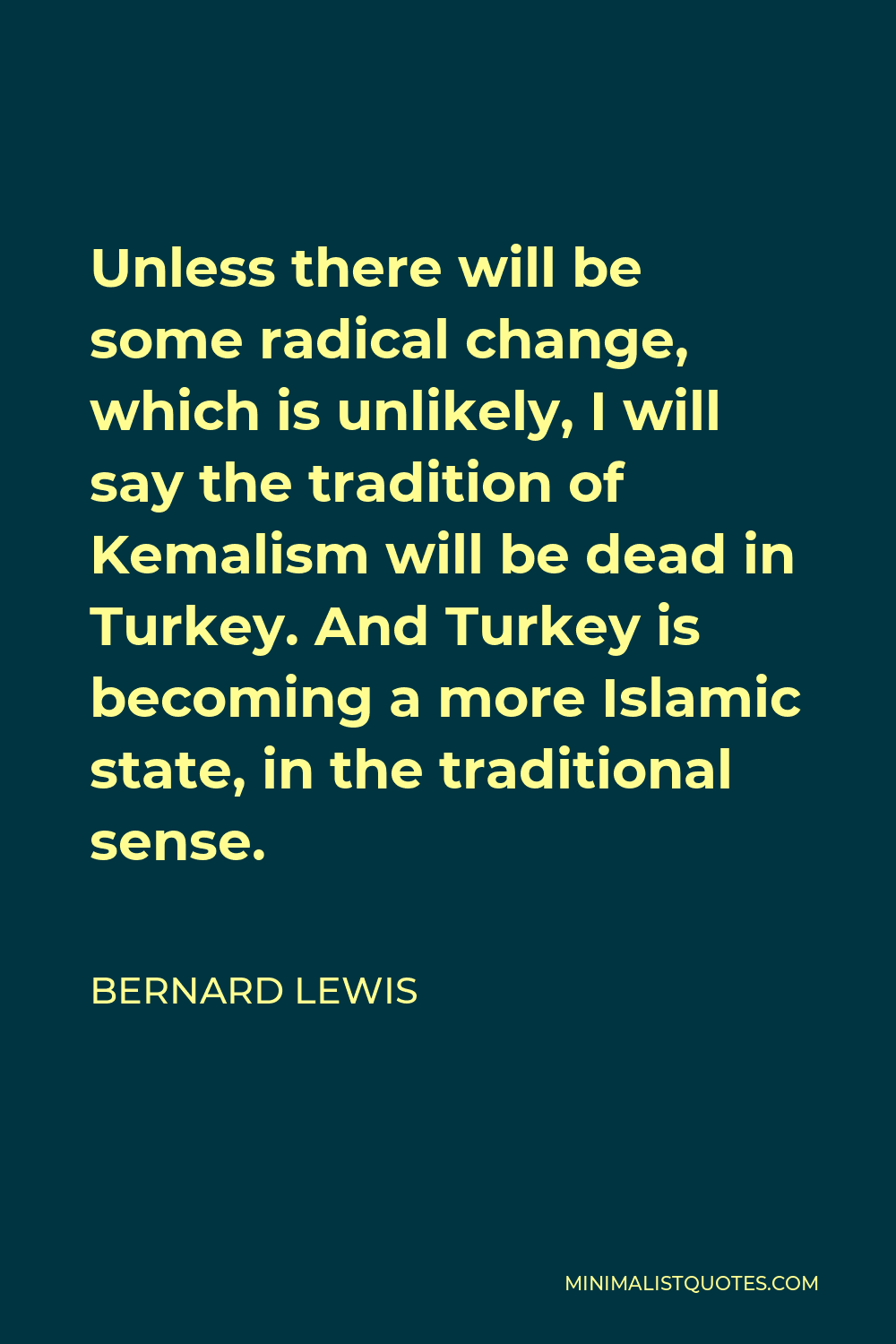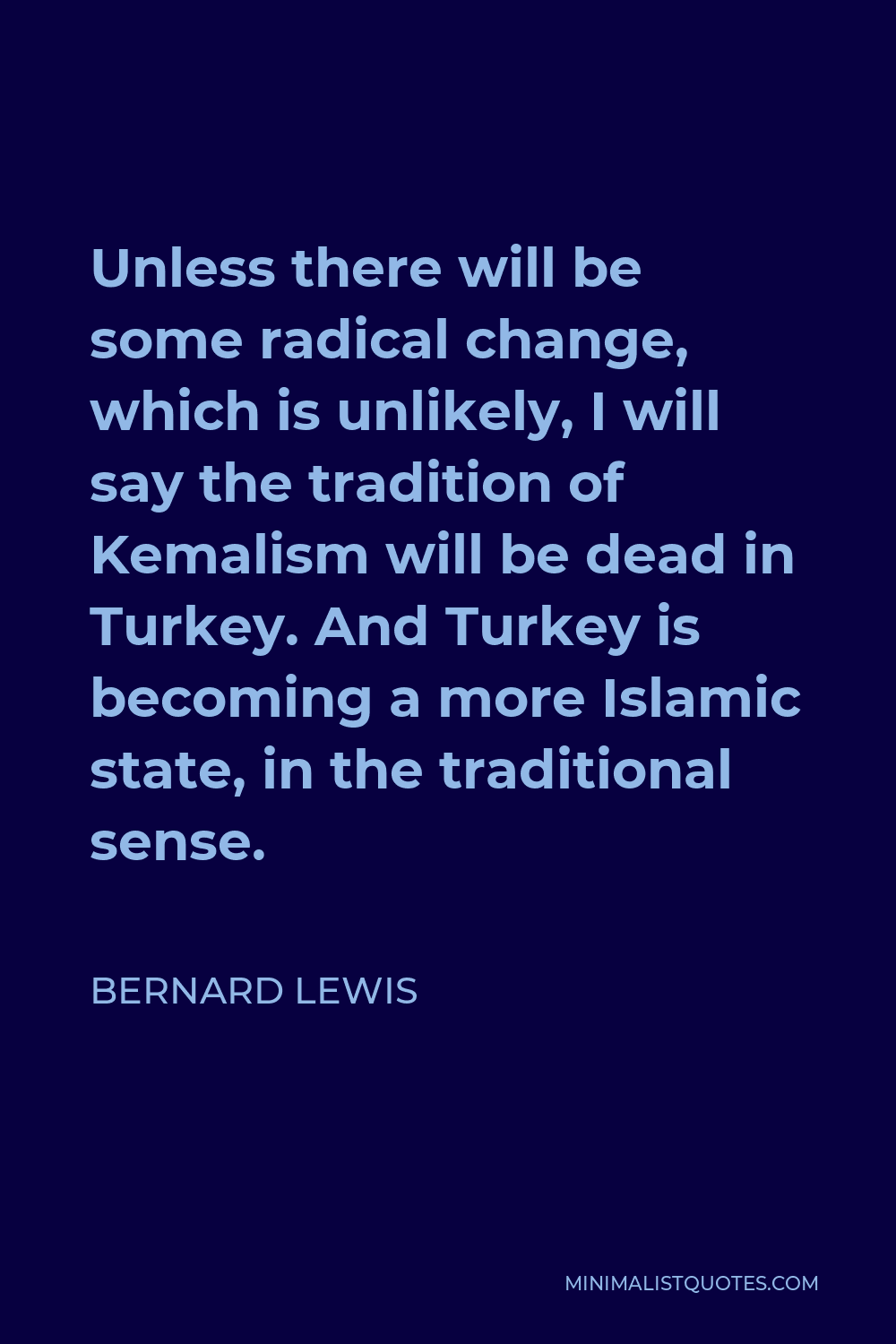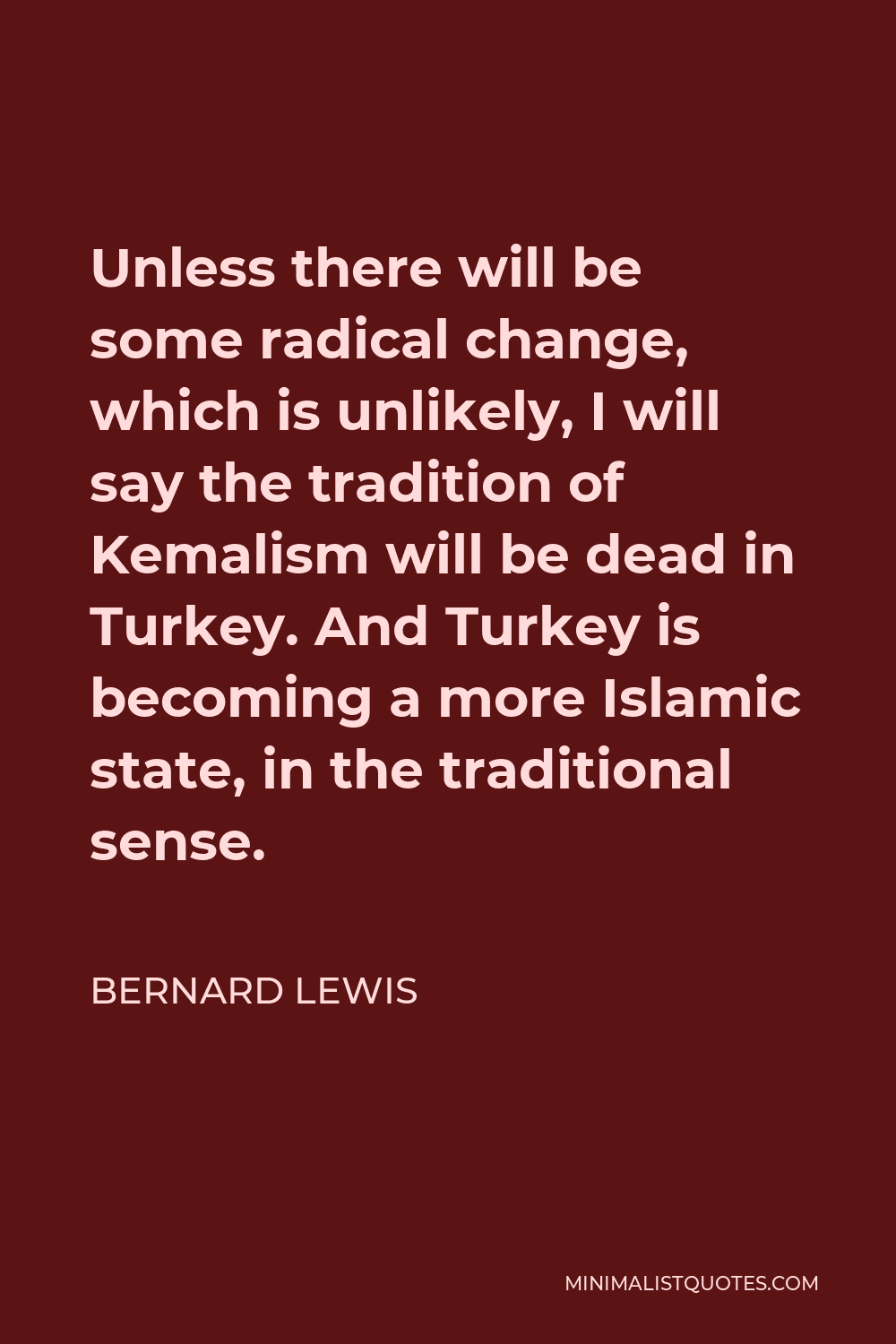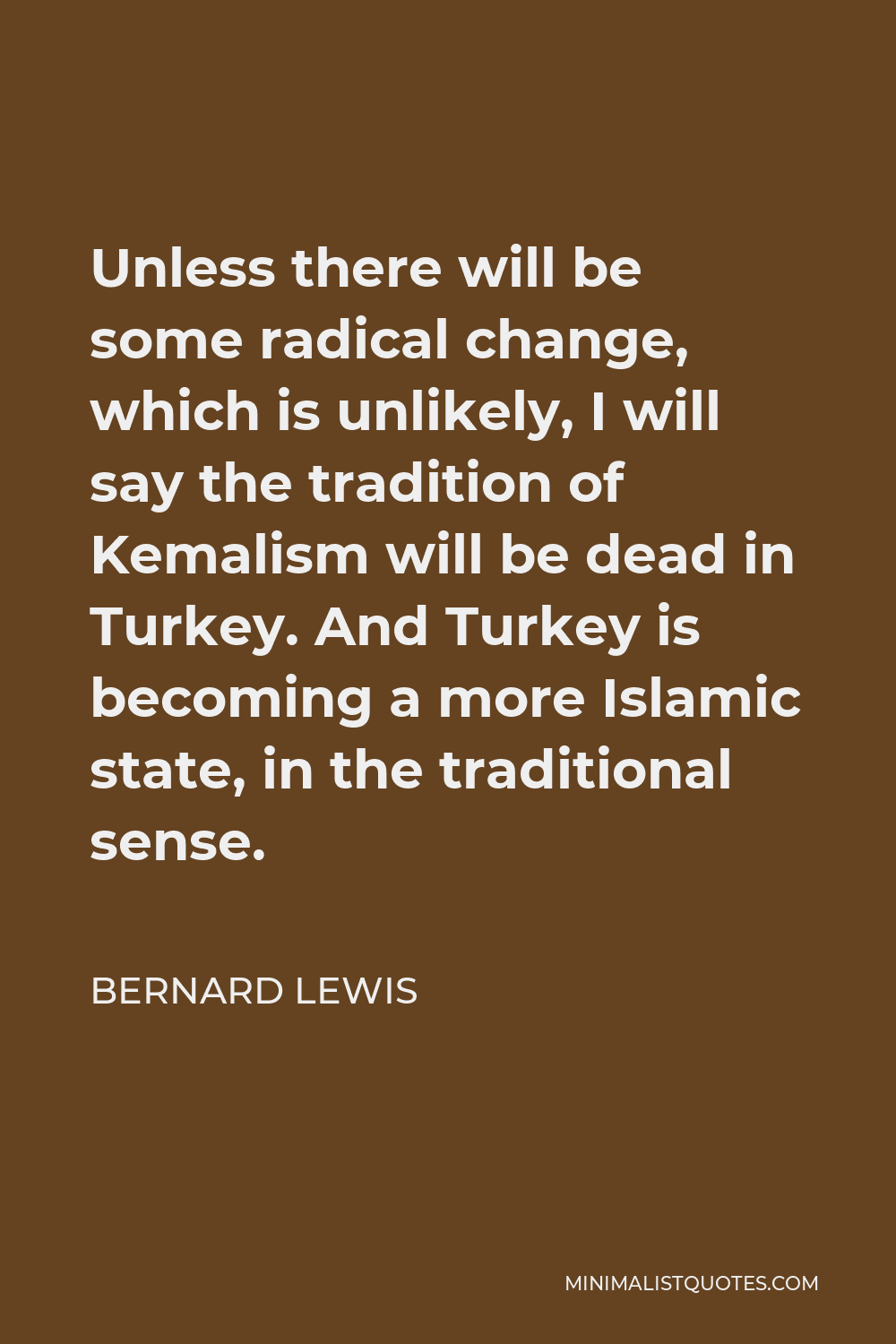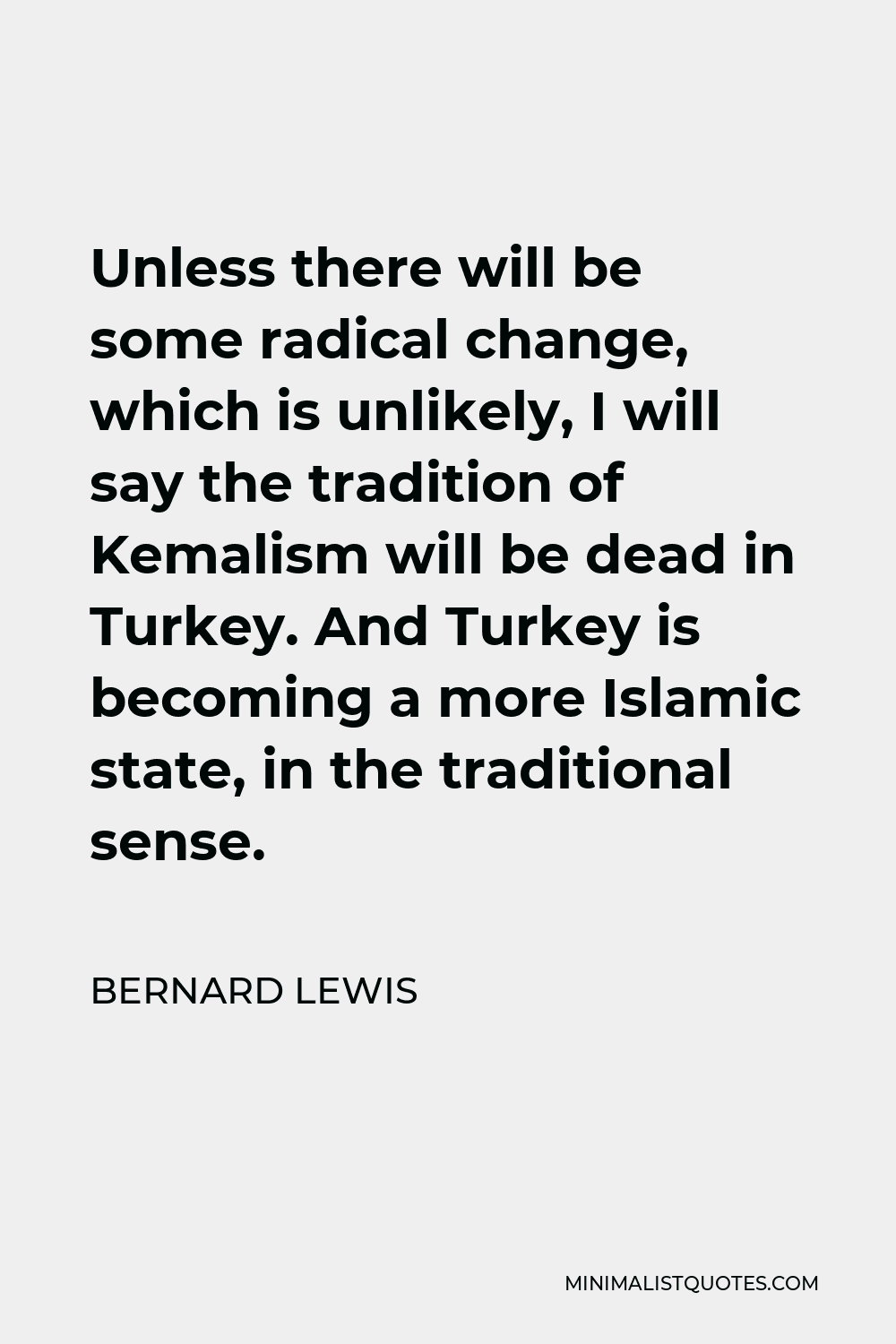Moses led his people through the wilderness and he wasn’t permitted to enter the Promised Land. Jesus was crucified.
BERNARD LEWISUnless there will be some radical change, which is unlikely, I will say the tradition of Kemalism will be dead in Turkey. And Turkey is becoming a more Islamic state, in the traditional sense.
More Bernard Lewis Quotes
-






-





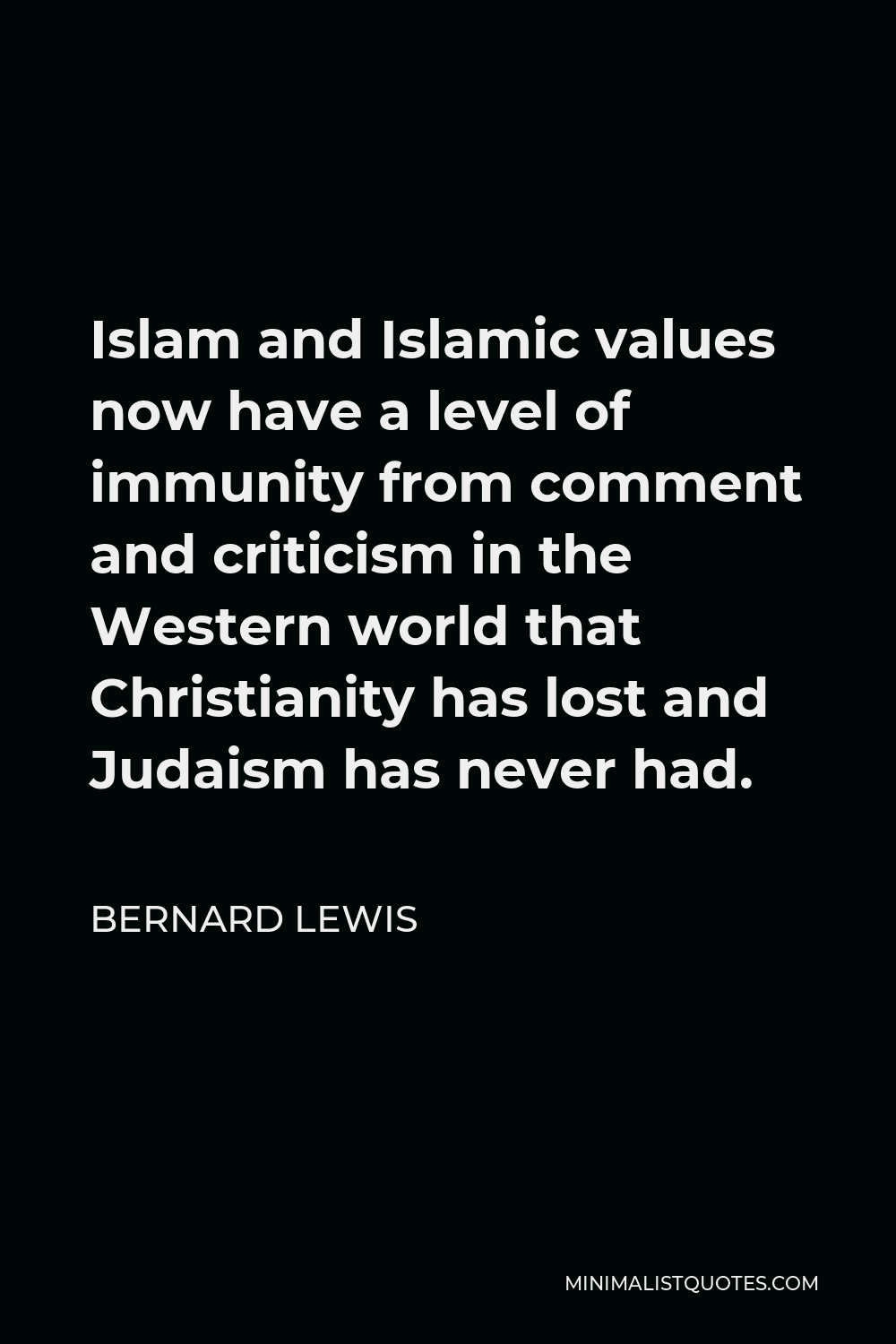
Islam and Islamic values now have a level of immunity from comment and criticism in the Western world that Christianity has lost and Judaism has never had.
BERNARD LEWIS -





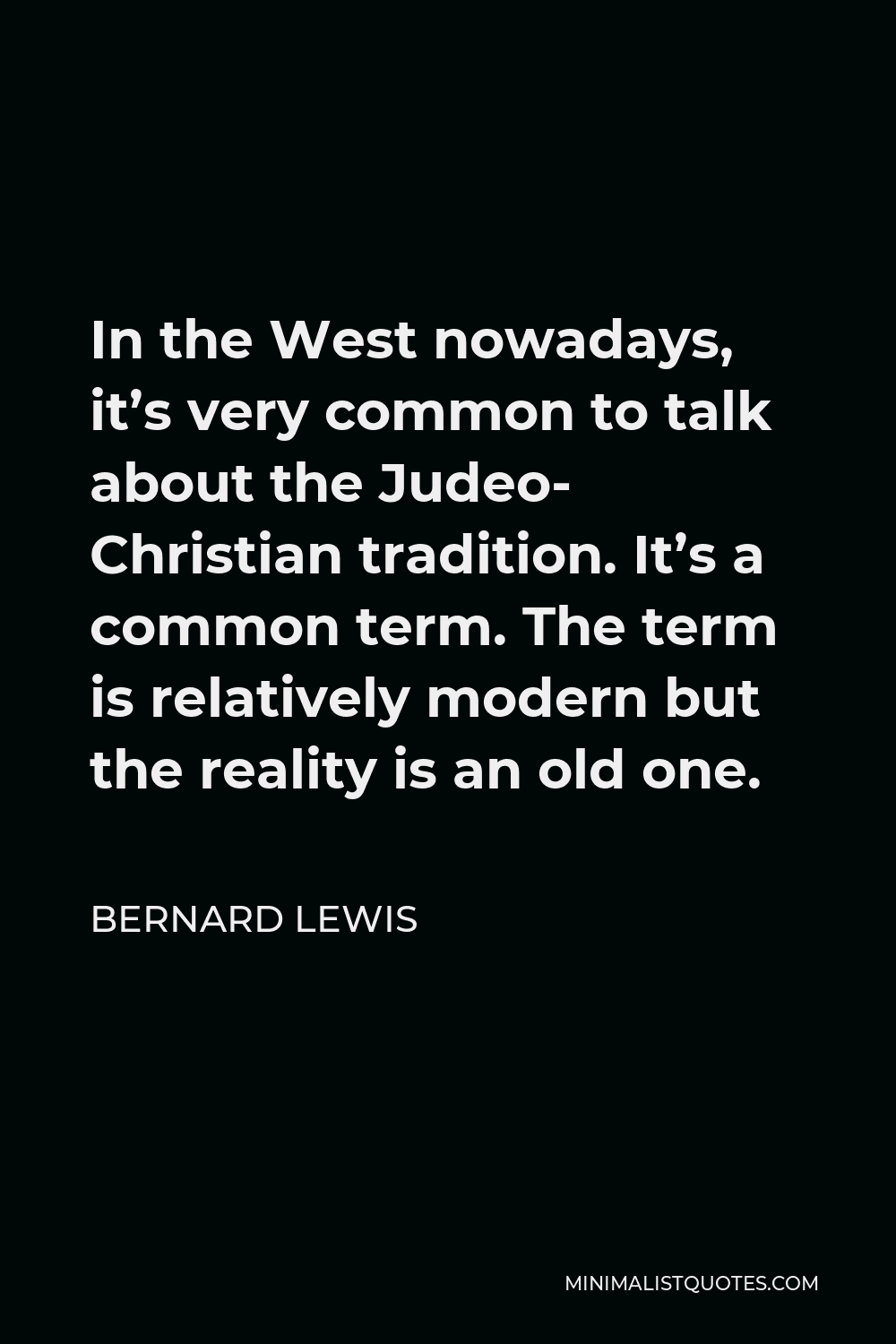
In the West nowadays, it’s very common to talk about the Judeo- Christian tradition. It’s a common term. The term is relatively modern but the reality is an old one.
BERNARD LEWIS -





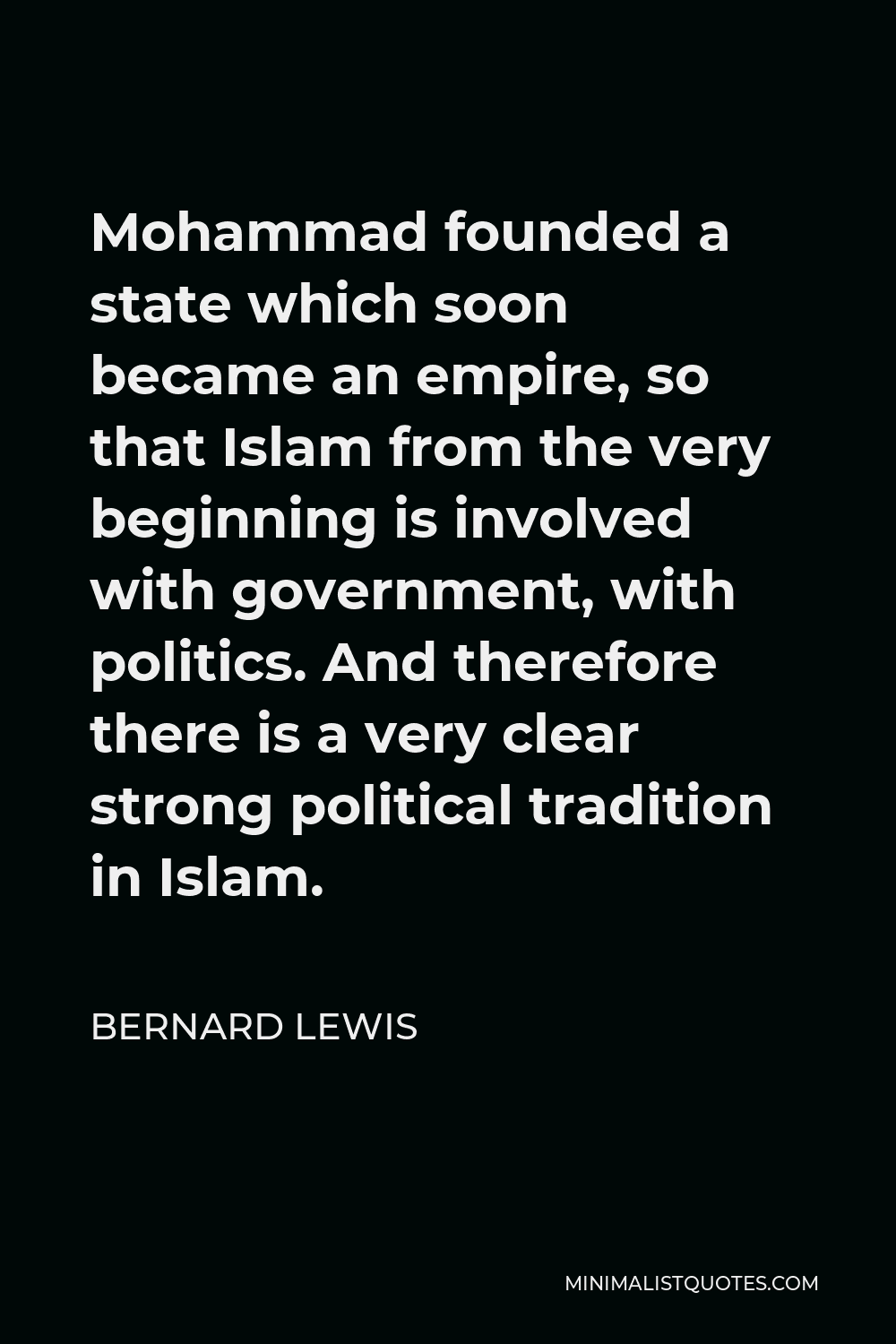
Mohammad founded a state which soon became an empire, so that Islam from the very beginning is involved with government, with politics. And therefore there is a very clear strong political tradition in Islam.
BERNARD LEWIS -





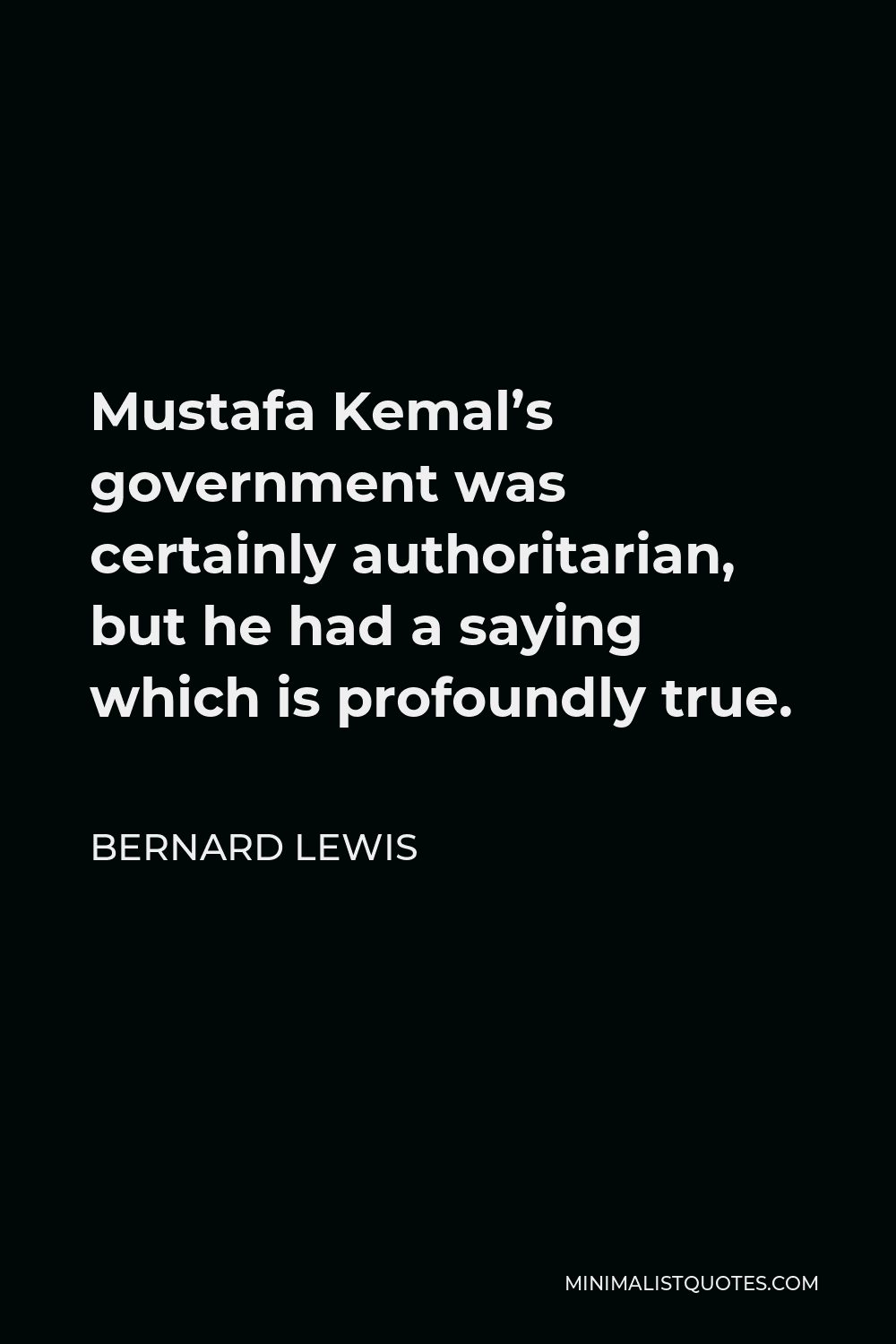
Mustafa Kemal’s government was certainly authoritarian, but he had a saying which is profoundly true.
BERNARD LEWIS -





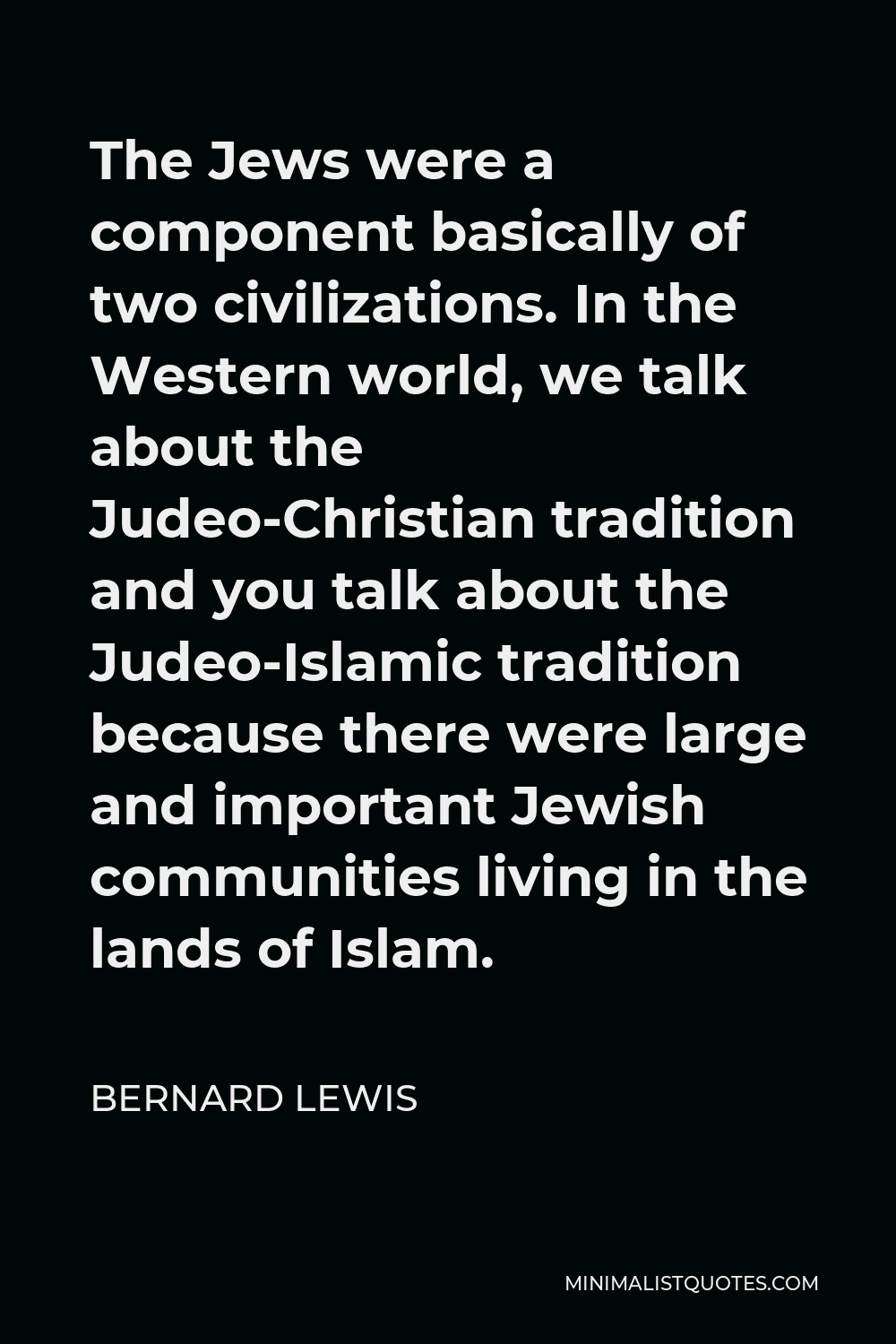
The Jews were a component basically of two civilizations. In the Western world, we talk about the Judeo-Christian tradition and you talk about the Judeo-Islamic tradition because there were large and important Jewish communities living in the lands of Islam.
BERNARD LEWIS -





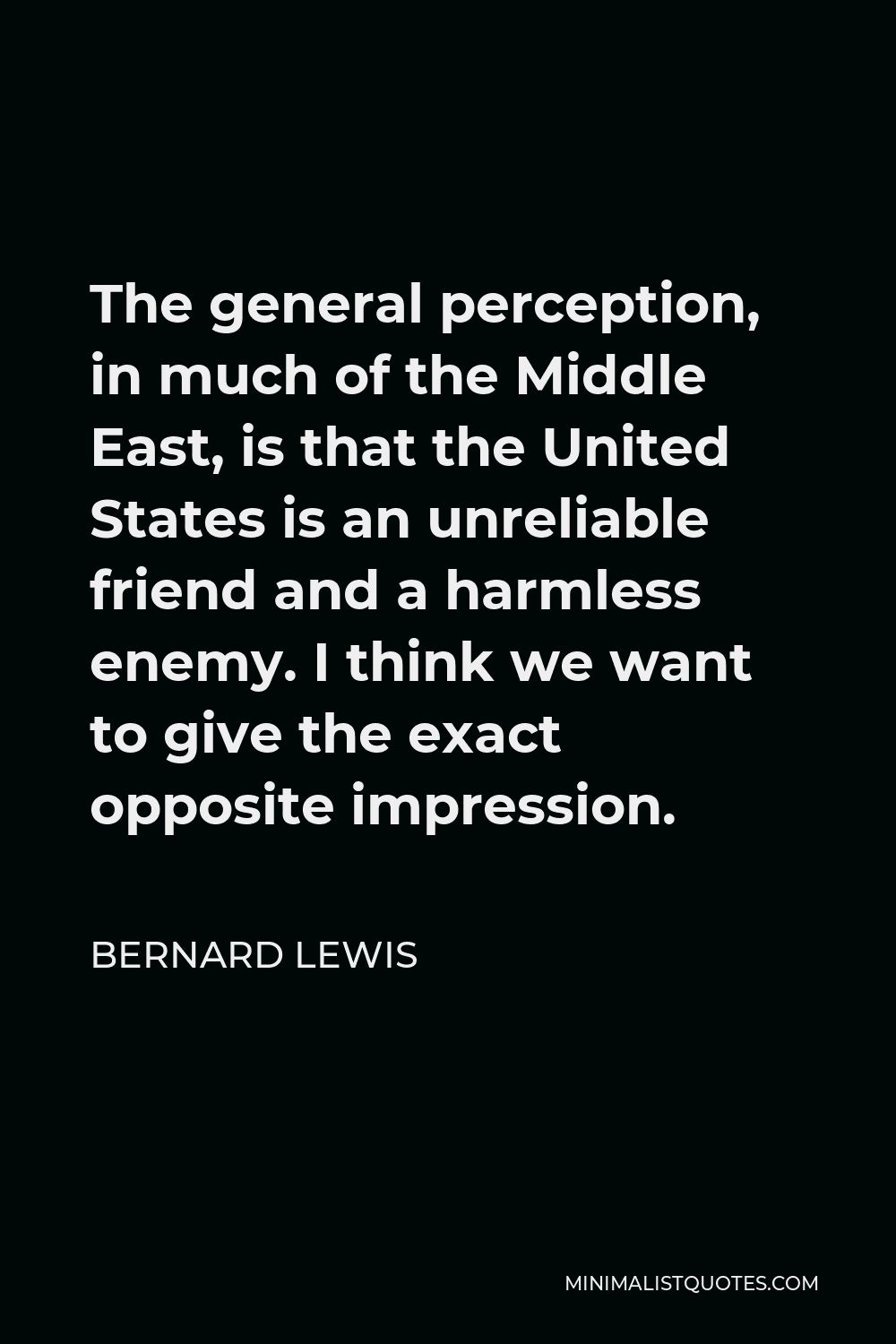
The general perception, in much of the Middle East, is that the United States is an unreliable friend and a harmless enemy. I think we want to give the exact opposite impression.
BERNARD LEWIS -





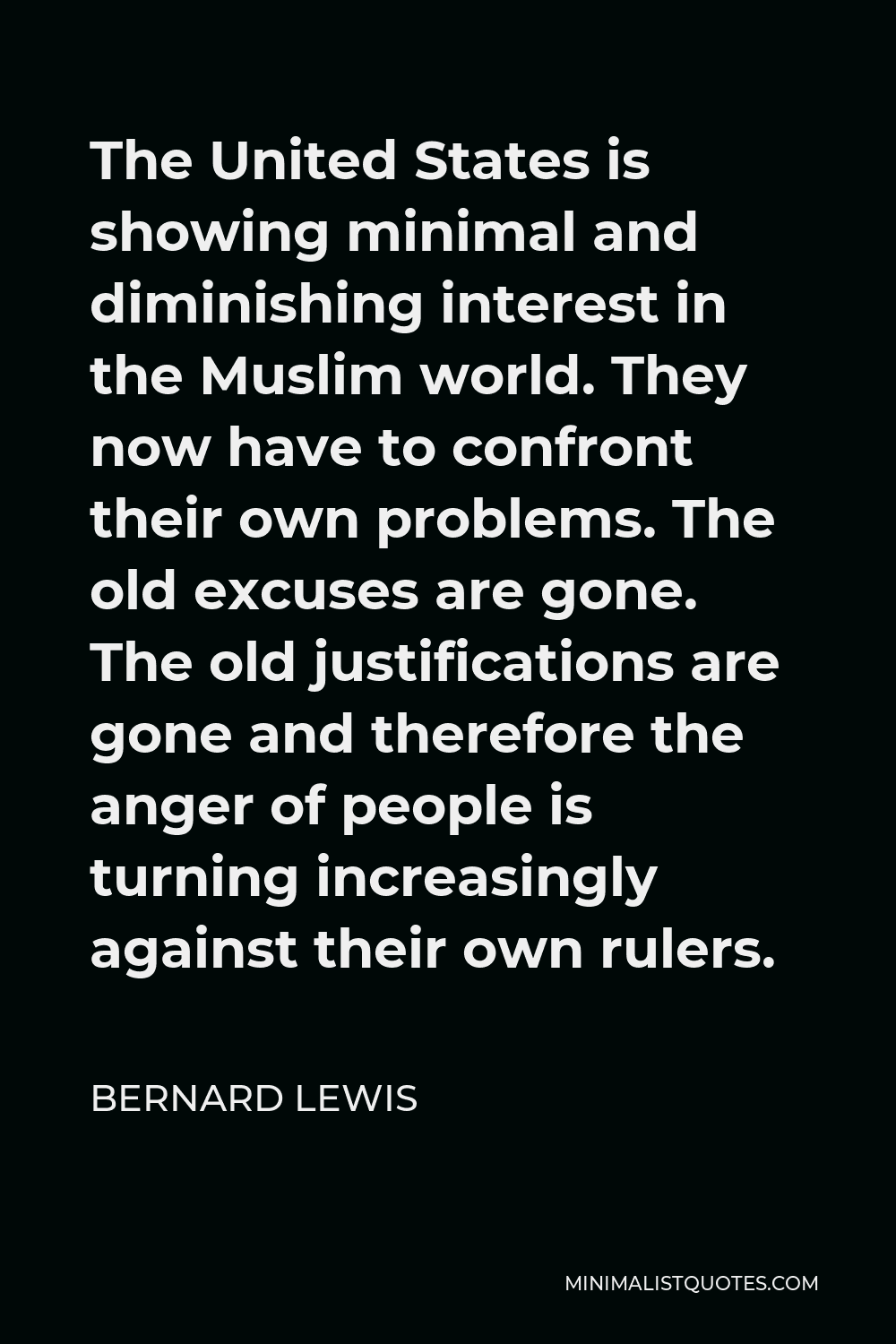
The United States is showing minimal and diminishing interest in the Muslim world. They now have to confront their own problems. The old excuses are gone. The old justifications are gone and therefore the anger of people is turning increasingly against their own rulers.
BERNARD LEWIS -





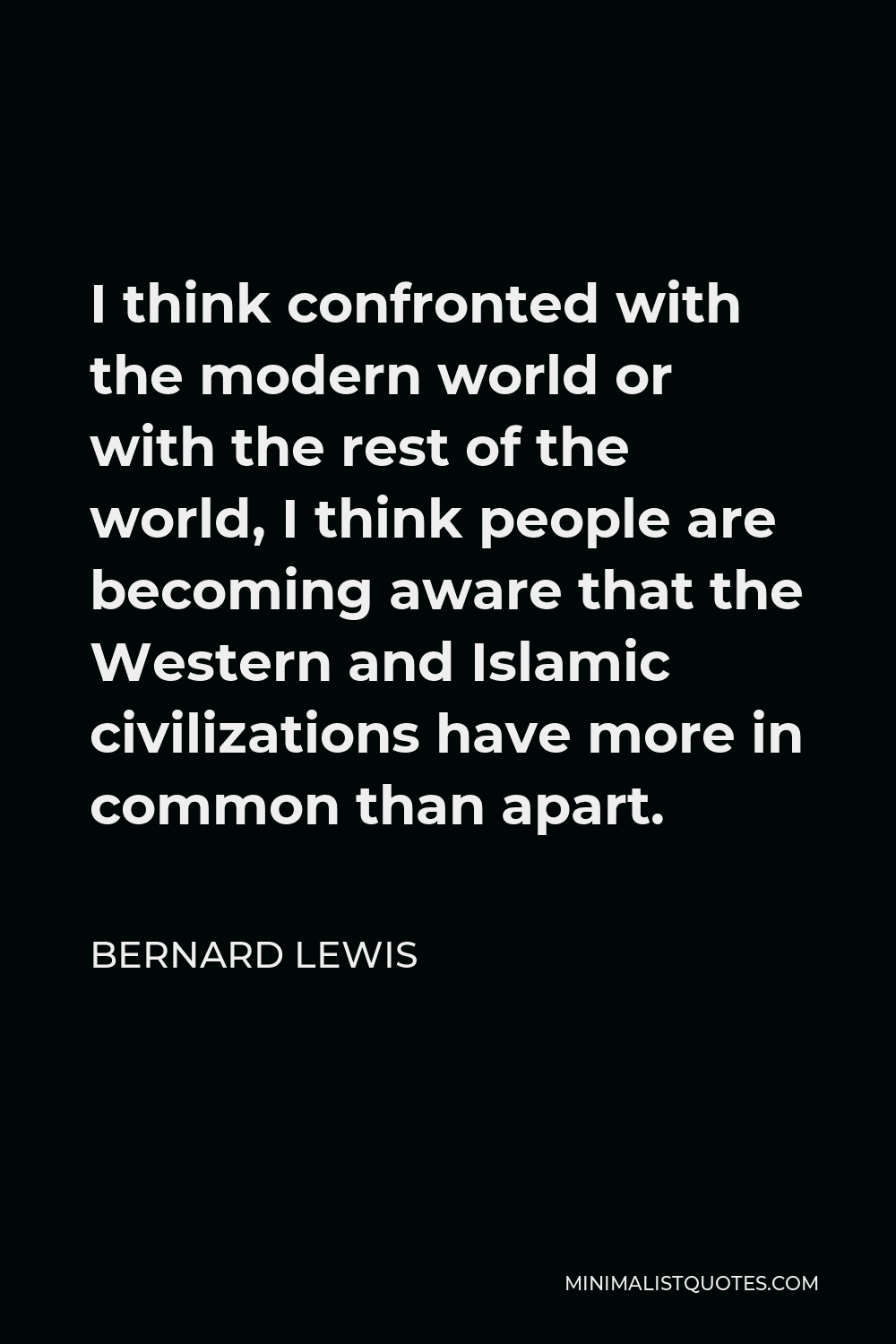
I think confronted with the modern world or with the rest of the world, I think people are becoming aware that the Western and Islamic civilizations have more in common than apart.
BERNARD LEWIS -





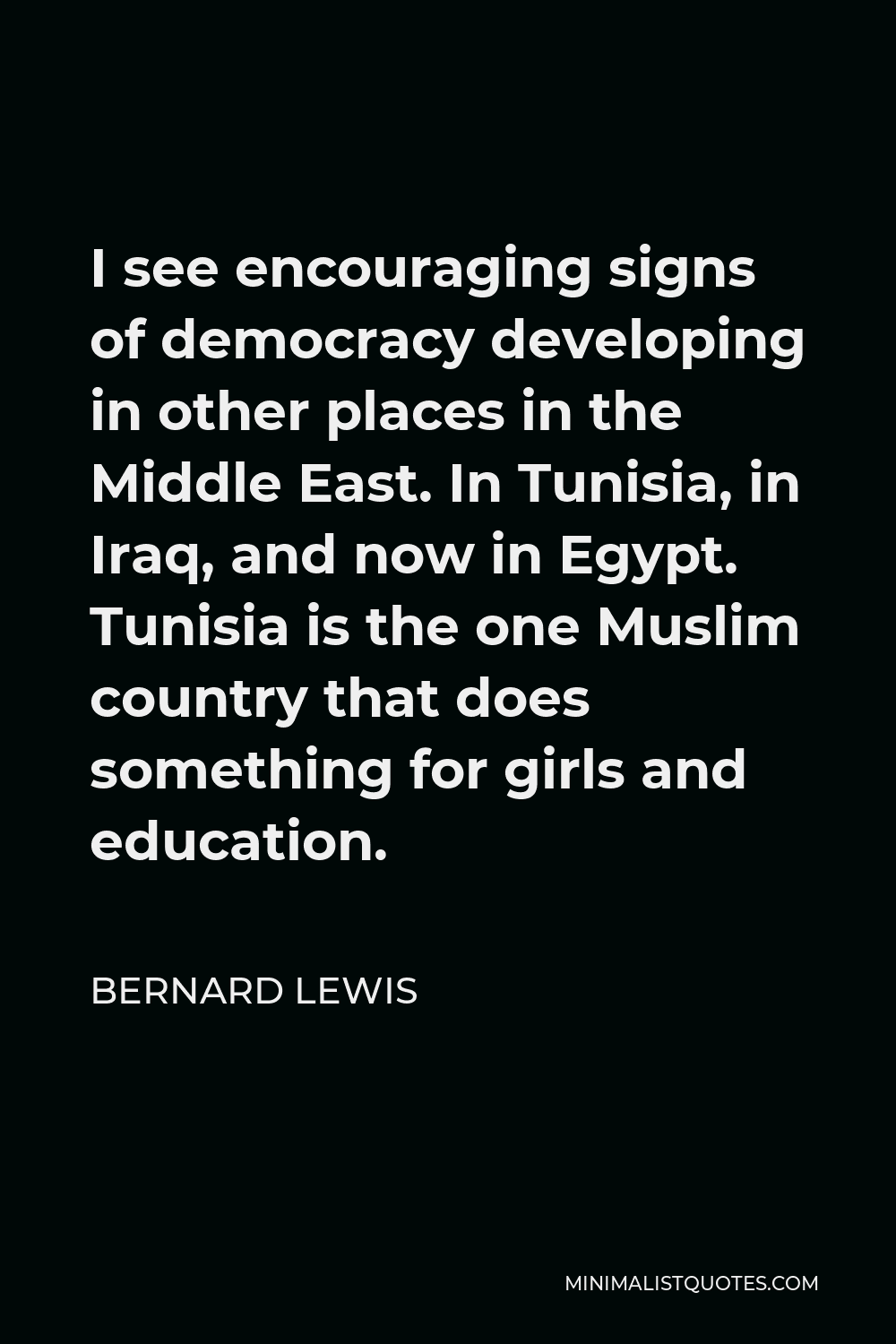
I see encouraging signs of democracy developing in other places in the Middle East. In Tunisia, in Iraq, and now in Egypt. Tunisia is the one Muslim country that does something for girls and education.
BERNARD LEWIS -





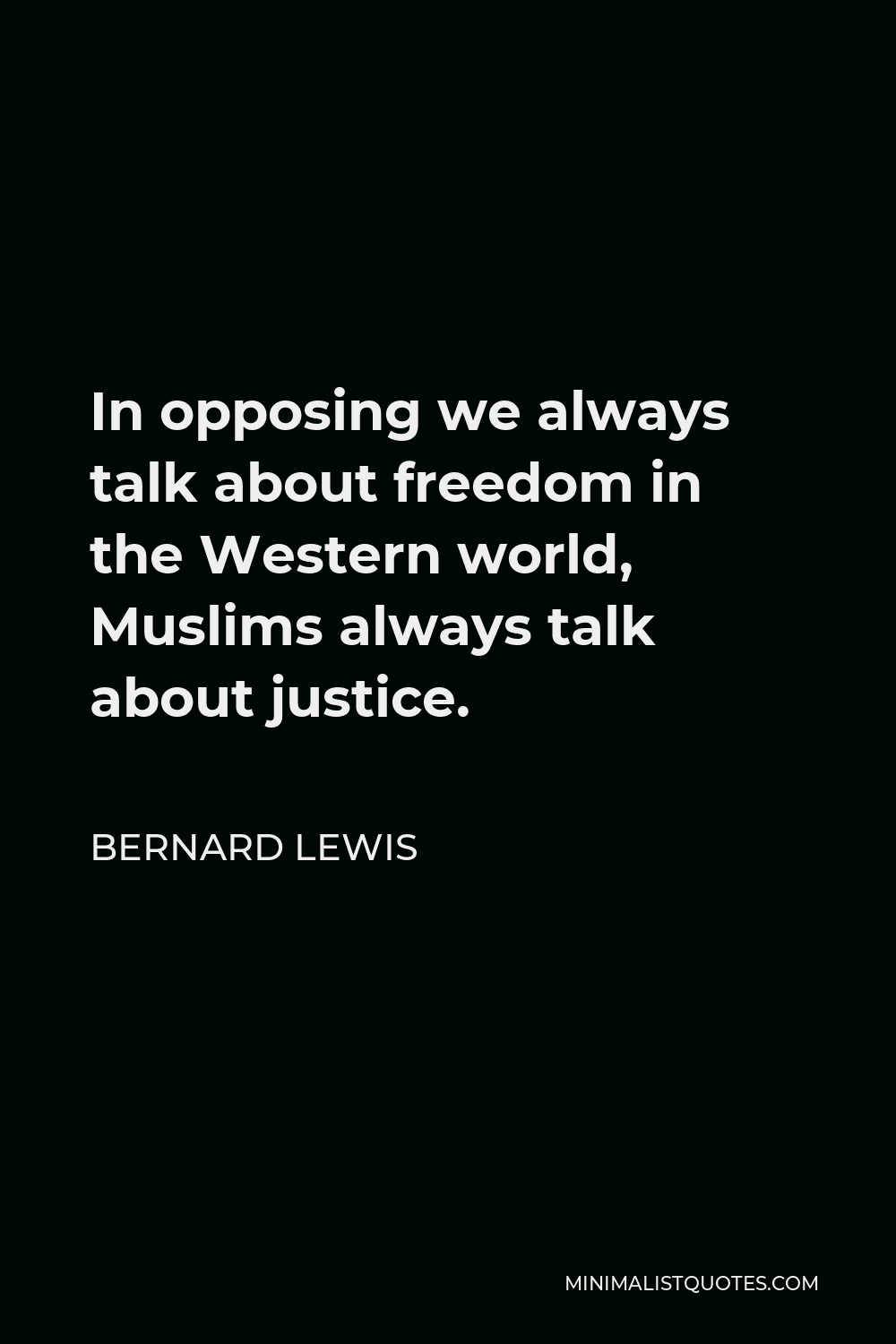
In opposing we always talk about freedom in the Western world, Muslims always talk about justice.
BERNARD LEWIS -





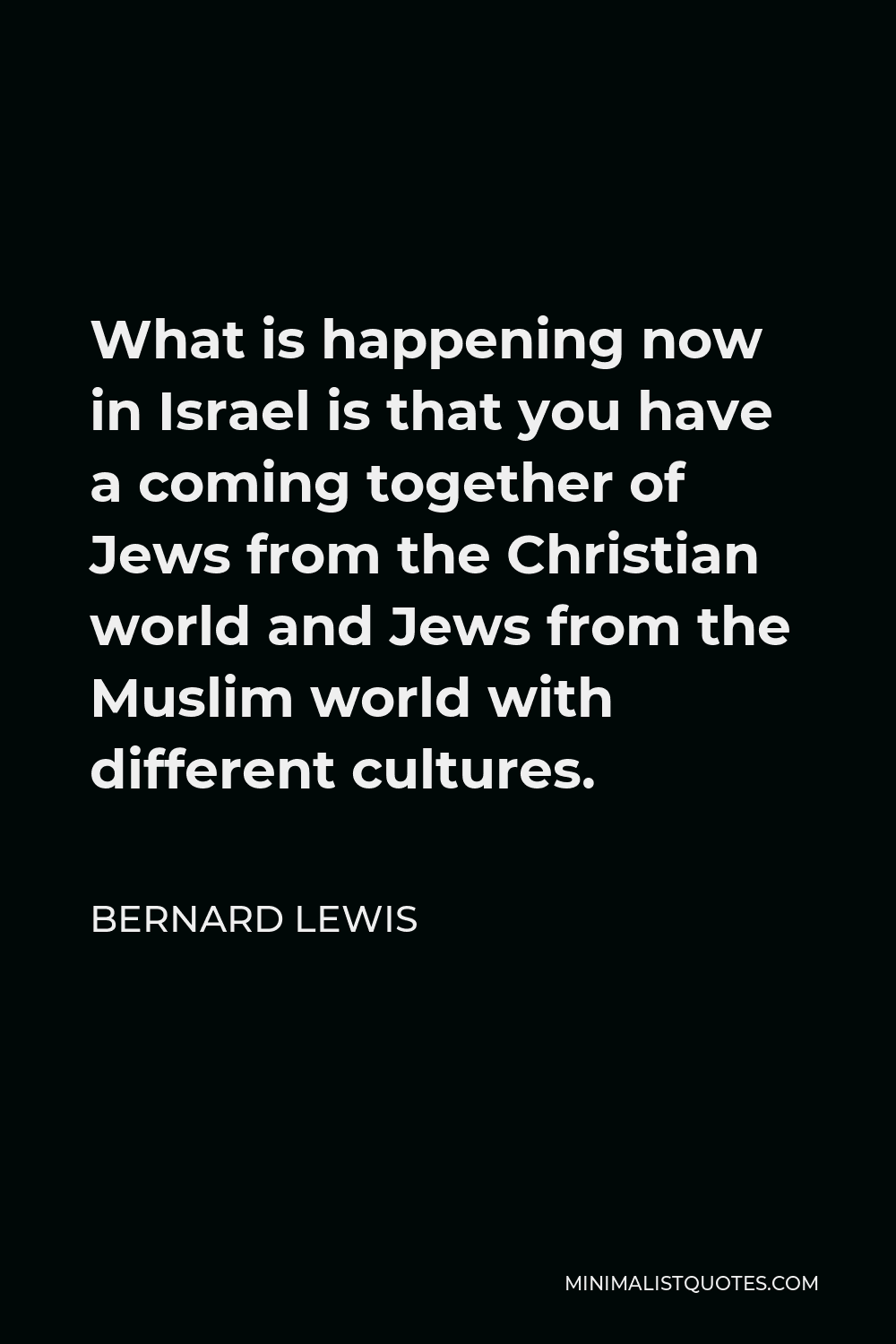
What is happening now in Israel is that you have a coming together of Jews from the Christian world and Jews from the Muslim world with different cultures.
BERNARD LEWIS -





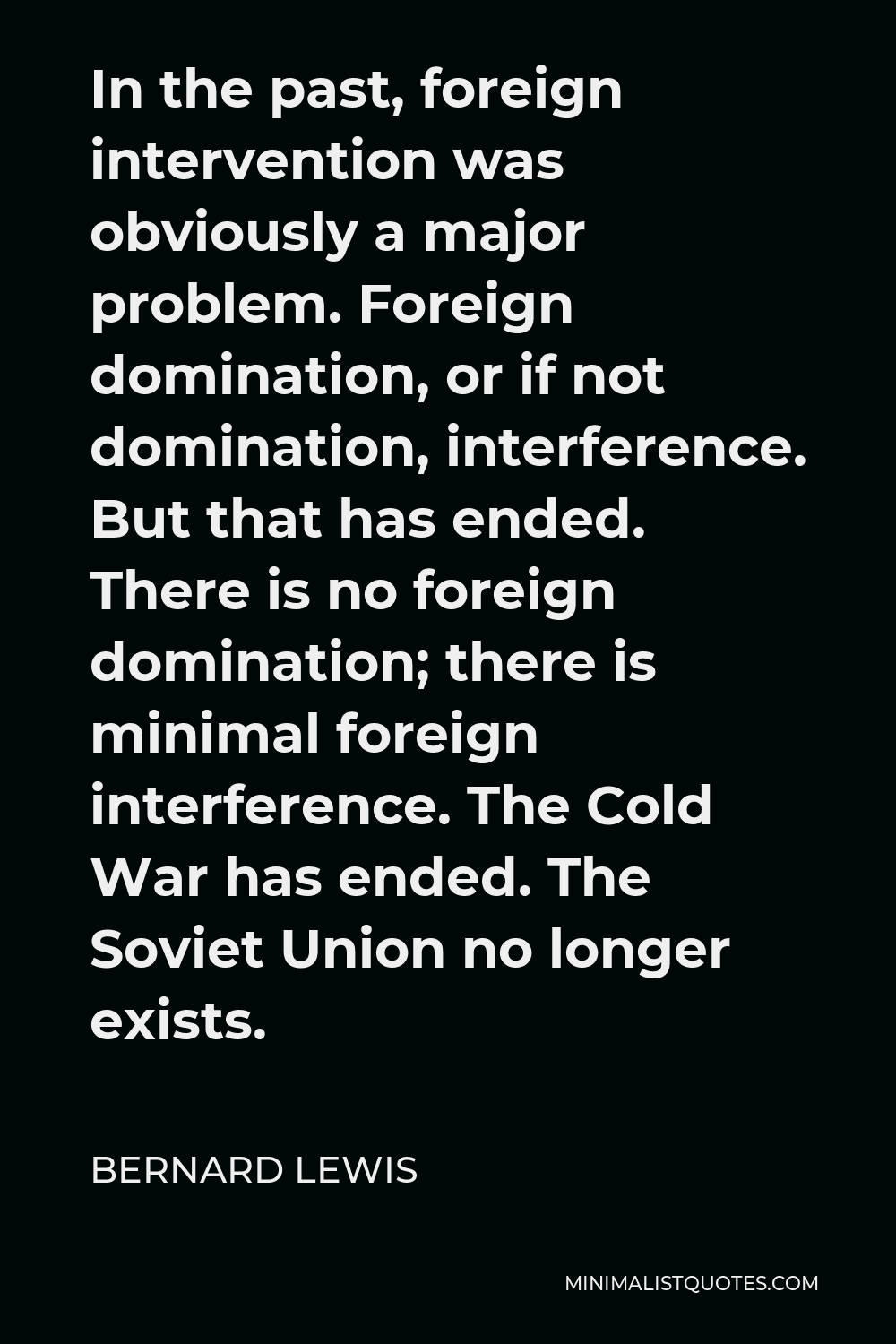
In the past, foreign intervention was obviously a major problem. Foreign domination, or if not domination, interference. But that has ended. There is no foreign domination; there is minimal foreign interference. The Cold War has ended. The Soviet Union no longer exists.
BERNARD LEWIS -





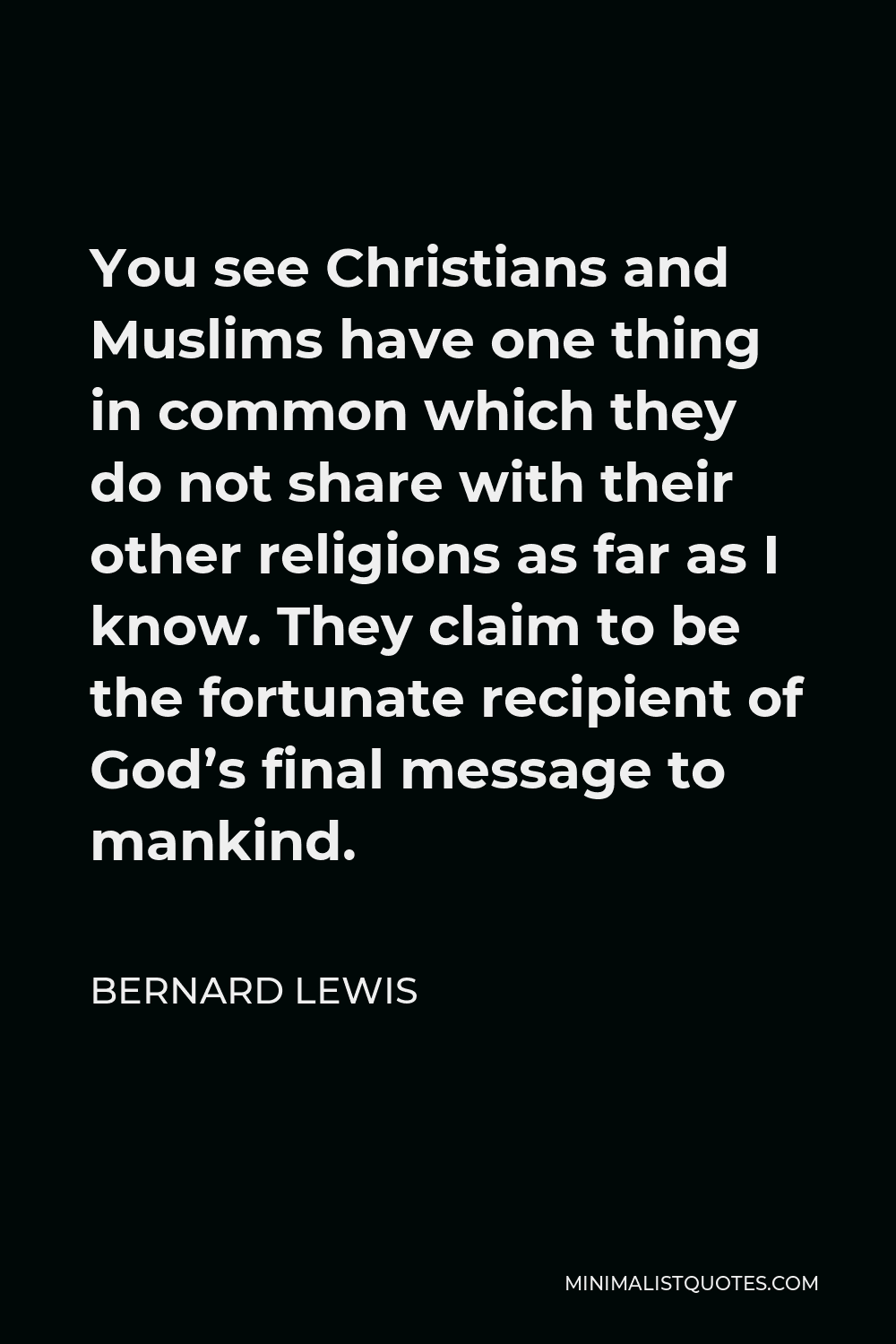
You see Christians and Muslims have one thing in common which they do not share with their other religions as far as I know. They claim to be the fortunate recipient of God’s final message to mankind.
BERNARD LEWIS -





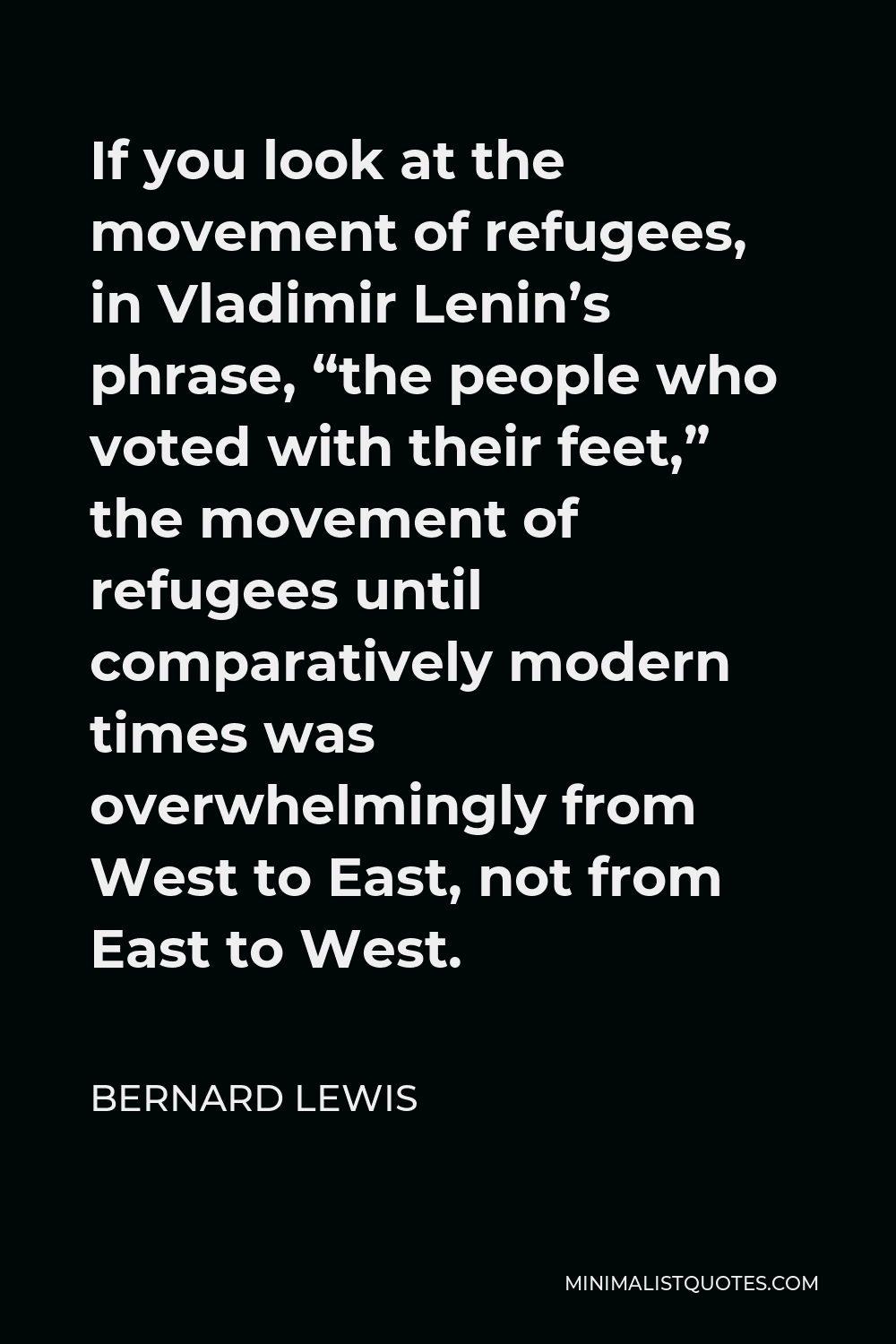
If you look at the movement of refugees, in Vladimir Lenin’s phrase, “the people who voted with their feet,” the movement of refugees until comparatively modern times was overwhelmingly from West to East, not from East to West.
BERNARD LEWIS -





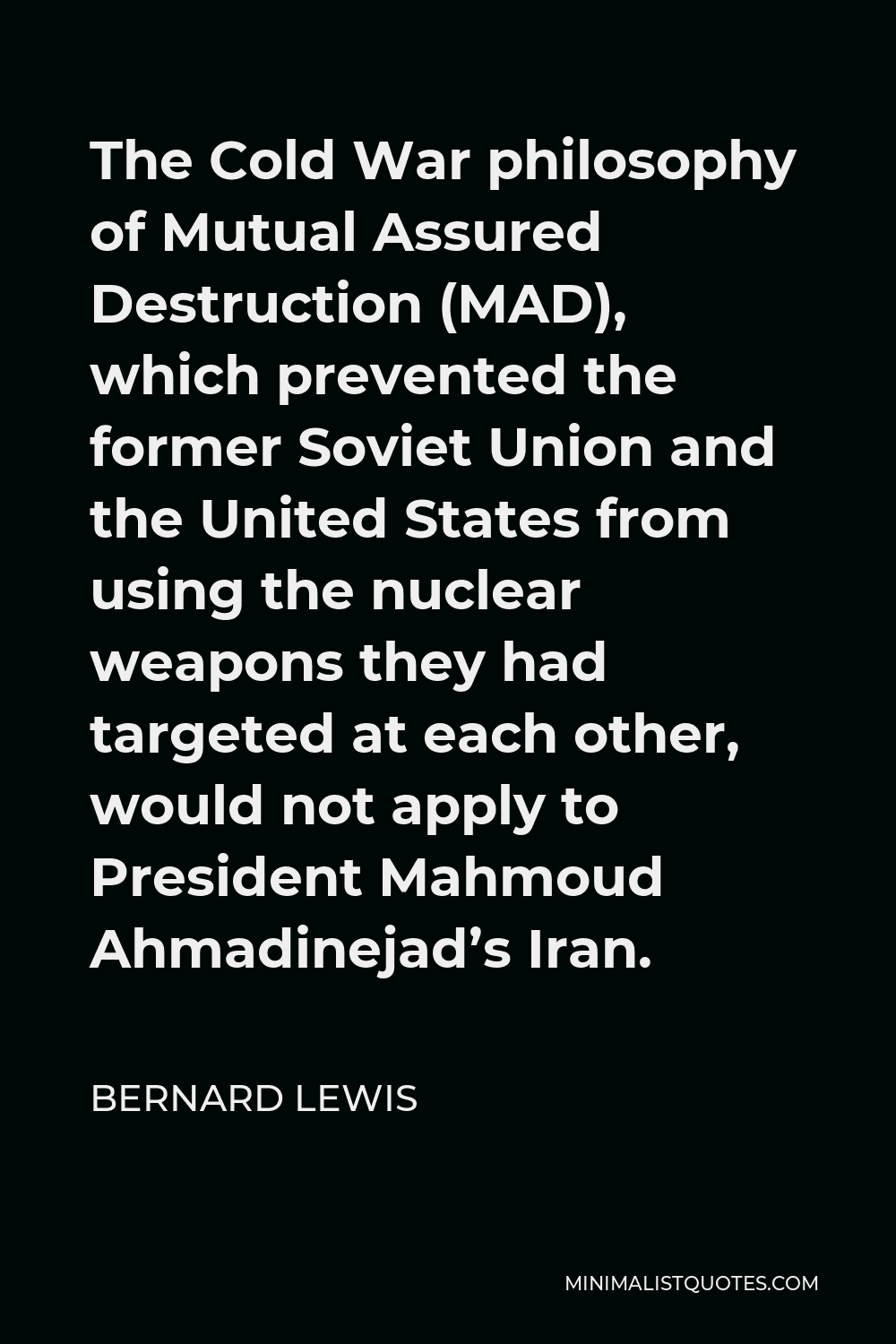
The Cold War philosophy of Mutual Assured Destruction (MAD), which prevented the former Soviet Union and the United States from using the nuclear weapons they had targeted at each other, would not apply to President Mahmoud Ahmadinejad’s Iran.
BERNARD LEWIS

